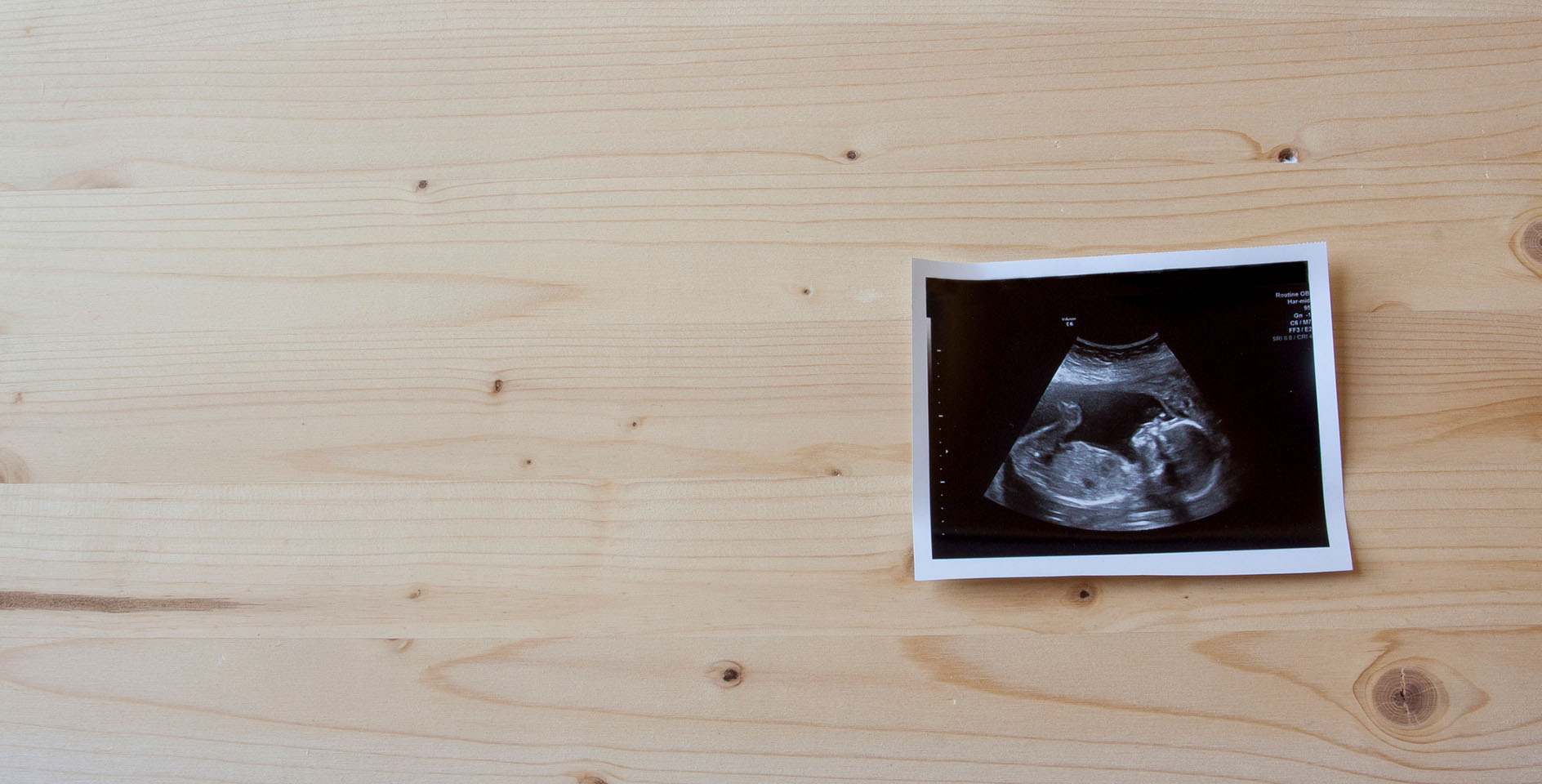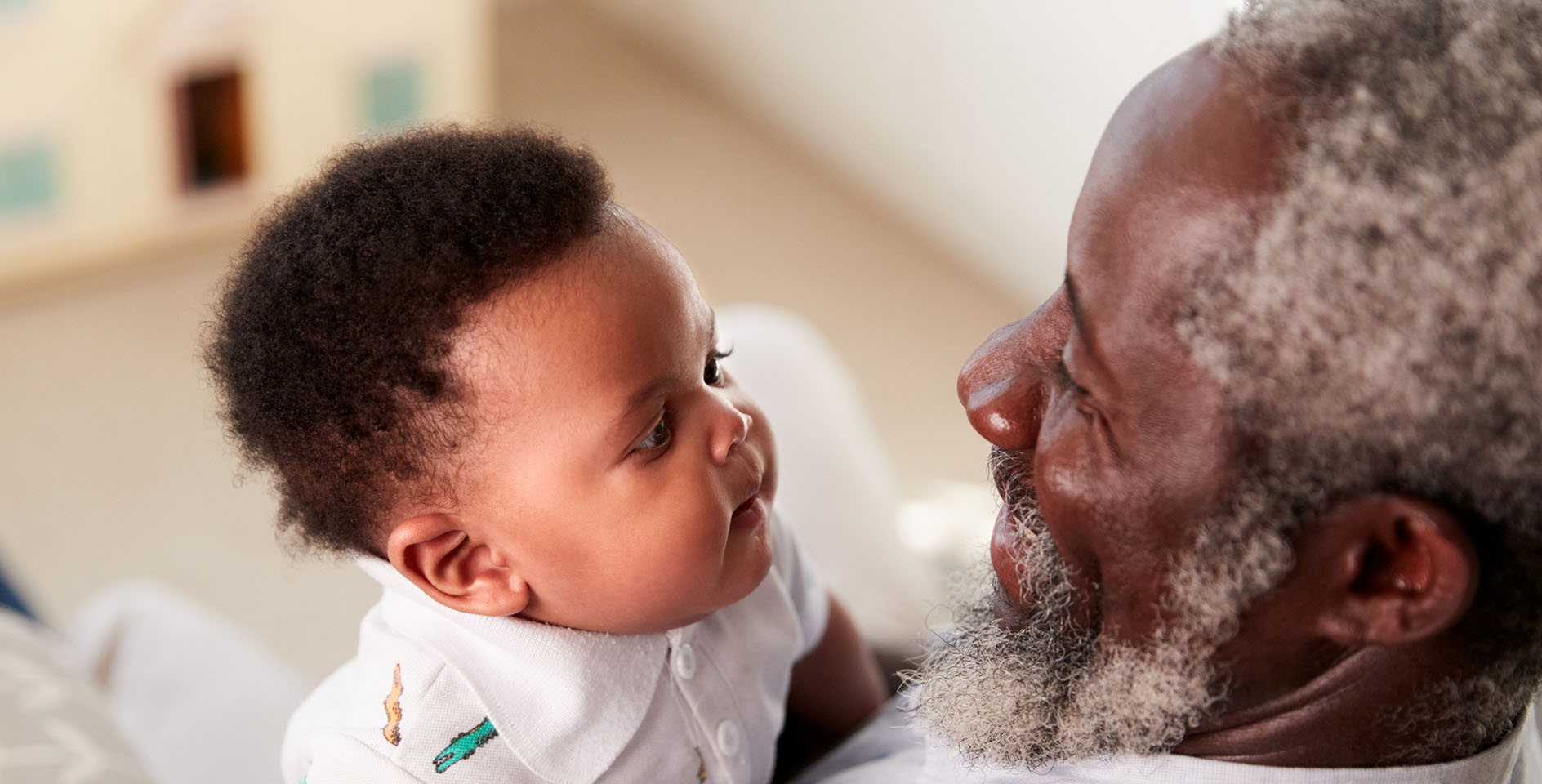The Indispensable Podcast, hosted by Ethan and Michaela Holsteen, is a ministry of the Louisville Regional Baptist Association (LRBA). In the podcast’s second episode, Ethan and Michaela sat down with Robert and Hollie Brookman to hear about their family’s experience regarding the challenges and blessings of navigating special needs and the church.
The LRBA was kind enough to allow the ERLC to transcribe a portion of that episode below. You can listen to season one of the podcast on their website or Apple Podcasts. Season two will be released soon.
It’s exciting to be able to highlight a story about one local church’s ministry to a special needs family and also to celebrate how a local association of churches is working toward disability awareness.
Introduction: (00:00)
Grief can be isolating. When we go through loss, we often want to shrink back to put up walls and pull ourselves away from others. However, what we most often need is others around us, helping us to look up from our current situation to see how God is at work and be reminded of what is true, not ignoring the pain, but learning how to walk the path of suffering well while in Christian community.
Ethan Holsteen: (00:40)
In this episode, we had the privilege of sitting down with Robert and Hollie Brookman in their home to talk about their experiences wrestling with an unexpected diagnosis and realizing the value and necessity of the church community.
Michaela Holsteen: (01:04)
Robert and Hollie Brookman have three children. And at the time of this recording, Hannah was 3 1/2, Clara was 18 months, and they had another baby on the way. Hannah has Cri du Chat Syndrome. It’s also called 5p- (Five P Minus), and it’s a rare genetic disorder. According to the Five P Minus Society website, only 50 to 60 babies are born with this syndrome in the United States every year. Can you tell us a little bit more about Cri du Chat? What does that look like?
Hollie Brookman: (01:41)
Yes. So it is a rare genetic condition where she is missing a portion of her fifth chromosome. And really all that means is that it causes some developmental delays, and can cause some health problems too. It is a spectrum disorder. So it’s all over the map. One person with Cri du Chat may or may not have any of the same characteristics or qualities as the next person with Cri du Chat, but it does result in some developmental delays, both physical and cognitive, and for Hannah right now at 3 ½ , it looks like not being able to walk on her own without holding onto something and not being able to communicate verbally right now.
Michaela Holsteen: (02:45)
After Ethan and I heard a little bit more about Hannah’s disability, Hollie and Robert described the season of life before Hannah was born. Early on in pregnancy, physicians told Hollie and Robert that Hannah was developing slowly. At around 15 weeks, the doctors referred them to a high-risk clinic, thinking that Hannah might have had Down syndrome. However, after some noninvasive testing, Hollie and Robert received the news that Hannah likely had 5P-.
Robert Brookman: (03:14)
Results came back, and we got the phone call from the genetic counselor saying, “We think it’s Five P Minus. Our first reaction was to immediately go online and look up everything we could about that. She told us not to, but right off the bat we found a lot of resources from the Five P Minus Society, which is the national support society for families
So, we felt like we were going to wait to follow up with a lot of that stuff until the diagnosis was actually confirmed. But I mean, overall, our first reaction was, I don’t know how you would describe it, but . . .
Hollie Brookman: (03:59)
Well, the testing that we did was not conclusive testing. I think that’s kind of important for that to be established that it was a screening, and they really couldn’t, say, give us a percentage of how likely it was going to be, but only that it was very possible. And so our reaction was, “Well, let’s just not tell anyone until we know for sure.” It would have been the day that she was born when we would have figured it out. So we had several months where our first reaction was that we’re just going to keep this to ourselves. And we’re not going to tell anyone outside of maybe our parents and siblings. We were just holding onto this on our own and not really sharing it with anyone or trying to reach out or anything like that. And we lasted, how long do you think we lasted?
Robert Brookman: (04:54)
We got that phone call on a Friday, and we said, “You know what, we’re not going to tell anybody; we’re going to keep this to ourselves until we get conclusive results. We’re just going to operate as if that phone call hadn’t happened. And, um, that lasted for a day and a half. I remember on that Friday, we did not want to be alone. We called pretty much everybody in our community group to see if we could go out to dinner with somebody just to get out of our house and stop thinking about it. But you can’t stop thinking about . . .
Robert Brookman: (05:59)
So, I led our family down a very bad path. I know that for a fact. That first day we found out about this thing, it was like, “We we’re just going to . . . I told you, “We’re not going to tell anybody about this. We’re going to hold onto this. We’re not going to talk to anybody about it until we find out.” That was totally the wrong thing to do. Like just totally backward. Then we felt, “We need to tell somebody. We can’t hold on to this. Like we’re already crumbling under it, and it’s been 36 hours.”
Robert Brookman: (06:30)
It finally just hit us that if we are in a community group with a church that keeps saying that community is meant to be a support and to help carry the load and bear a lot of those burdens, and yet we’re not willing to let community do what it’s supposed to do because we’re just going to hang on to this out of our own pride and out of our own, you know . . . It’s our first kid, what do you expect? You just kind of go into it with rose-colored glasses thinking everything’s going to be fine, because that’s most people’s deal. You don’t really ever think, “Oh, the first one’s going to have a genetic disorder.” So, yeah, we made it probably a day and a half before the first people we told, who were our parents.
Robert Brookman: (07:16)
It was something to finally start to unload that. And then, you know, Sunday, obviously, we met with our community group and it was just like, this is going to be difficult to even just tell people this, because of fighting a lot of those feelings of pride and of worry and anxiety and all of it. But you know, people surprise you with how they react to stuff and you think, Oh, well, I’m so focused on how I don’t want to share this that I’ve totally lost sight of how everyone else is going to react in an encouraging way. And that’s all that we received — just encouragement time and time again.
Hollie Brookman: (08:19)
It was several months of ups and downs of emotions. And I was so thankful that we did share with our community group, because I had a lot of women in our group who were pouring into me and pointing me to the truth and reminding me that God is still good in this and that he still has a plan for her life and that it’s to glorify him no matter what she looks like, no matter her genetic makeup, no matter if she can walk or talk. And it was just so important for me to be able to hear that, to hear something that was true rather than what a lot of people’s first reaction is when you tell them something like this: “Oh, well maybe, maybe the test is wrong or, well, maybe she’ll outgrow it, or maybe . . . or, man, that’s really stinks. You do not deserve to have this happen to you.”
Hollie Brookman: (09:15)
And so it was really good that we did share it, because there were people that we trusted who were wise that could be praying for us and could point us to biblical truth throughout those months when we just didn’t know what was going to happen, but we were still processing and mourning what we thought our child was going to be coming to terms with — what God was giving us — which in the end it was still good even though it didn’t necessarily feel good at the time.
…
Michaela Holsteen: (12:11)
So what were some specific Scriptures or biblical truths that you were clinging to during that season?
Robert Brookman: (12:17)
The one passage that I constantly go back to, that I read very early on during the pregnancy after we found out about 5P- was John 9. It’s Jesus and the disciples walking along, and they come upon a man that was born blind. So, the disciples at the beginning of the chapter lean over and they’re like, “Hey, do you know who sinned, this man or his parents, to make him born blind?” And Jesus’s reaction is, “That’s not the point. The point is not that someone did something that caused this. The point is that God’s strength and power and plan would be shown through this person’s life because he was born blind.” And then, you know, the chapter continues on, but that first five or so verses of that chapter where that interaction happens, there’s so much you can pull from that.
Robert Brookman: (13:10)
I mean, the fact that it’s not the Pharisees that are asking this question, it’s the disciples. It’s the people that you would expect to have the right answer and to know what to say in that moment who are the guys that end up asking just a really ridiculous question. And the fact that Jesus says that the point is not something happened because of something they did. You know, I think some people have the idea that special needs or things that happen like that are born out of some kind of circumstance whether that’s spiritual or otherwise. I don’t think that has anything to do with it. God has predestined people to be born differently than us. And so you know, for us, that was a really huge piece of Scripture. It was just saying that Hannah was going to be born the way she was not because of anything that we did, not because of sin in our lives that caused God’s wrath to come down on us in the form of this special needs child. Instead, it was all about the fact that God wanted this to be a part of our family’s future. And there was a plan behind it all.
…
Hollie Brookman: (15:03)
Yeah, it definitely shifted our focus from being internal to asking, “What is the purpose of this?” Ultimately, it’s to glorify God somehow. We might not see it now. We might not be able to conjure up some reason why God would put this in our lives, but it’s to bring him glory. And we’re going to understand that someday. I don’t know when, but we will understand it someday. What helped me in the transition from mourning the idea of what my child, my first child, was going to be like and wrestling with those emotions that come with that but not wanting those emotions to take over and make me feel like I didn’t deserve this and that God was not being good and that God was punishing me for whatever reason was: I kept being pointed to this story that comes out of Mark 9, where there’s a boy with an unclean spirit and the disciples bring this father and the boy to Jesus because the disciples have been unable to cast the spirit out.
Hollie Brookman: (16:05)
And so the man says to Jesus, “If you can do anything, have compassion on us and help us.” And then Jesus said to him, “If I can? All things are possible for one who believes!” And immediately the father of the child cried out and said, “I believe. Help my unbelief.” And that was something that I had to cry out to the Lord about often when I was in tears and a complete mess —j ust in those spirals of emotions. And at the same time, knowing God is still in control and God is still good, but there’s parts of me that didn’t believe that in those moments. And so just crying that out over and over again was something that I did as we were working through this. And that stuck out to me. And that’s something that a wise woman that I had talked to about what was going on had pointed me to from the beginning. And it’s just something that I clung to throughout the whole season of our life, where we didn’t know what was happening.
Ethan Holsteen: (17:08)
After much anticipation and a challenging delivery, Hannah was born. Her diagnosis was quickly confirmed for Robert and Hollie when they heard their newborn daughter’s unique cat-like cry which is characteristic of Cri du Chat syndrome. Further genetic testing made the diagnosis official. However, instead of feeling the anguish of anxiety upon confirmation of Hannah’s diagnosis, by God’s grace, they felt peace as well as the excitement and joy of finally meeting their daughter.
Michaela Holsteen: (17:39)
Three years later, Robert and Hollie have welcomed another little girl into their family and are awaiting the arrival of a third. Their life is not what they originally expected, but the joy and hope that they have in the faithfulness of Christ is evident. Their days now are filled with lots of laughs, spilled oatmeal, trips to multiple therapies, and filling out endless Medicaid waiver forms, yet they wouldn’t change a thing.
Ethan Holsteen: (18:07)
What does church life look like for your family? Some of the positives, some of the challenges.
Robert Brookman: (18:12)
Yeah, so, our church doesn’t have a ton of special needs individuals in it to begin with. Especially in the kids’ ministry, there’s just not that many kids with special needs. And so, you know, us being the first, as we were looking for that John 9 purpose and asking, “What is the thing that God’s got in store for us as a family? Not only just for Hannah’s life, but for us,” we thought, “Maybe this is part of what God’s wanting us to do — to get our church involved in special needs.” Our whole mentality was leaning into our church family, not away from it. That’s what we did with our community group. I think most people’s first reaction when something hard happens is to lean out. You tend to draw away from church, because of either pride or hurt or feelings of isolation thinking, “I’m the only one dealing with this, so no one else will really understand it.” Our first tendency as people is just to get away from people, but the need is to lean in.
Robert Brookman: (19:58)
And so for us, that meant, “We’re not going to pull out of church or stop serving just because we have this child that’s medically complex, that has a lot more needs. We’re going to make it easy for our church to minister to her. So whether that was educating our leaders; I know we’ve met with our church leaders a bunch of times just to talk about how we as a church can better support special needs individuals.
Robert Brookman: (20:47)
So we met with them to talk about that stuff. And we met with families that regularly served in Hannah’s classrooms to make sure that. . . . “Hey, I want you to understand that when she’s doing these things, here’s what these things mean.” We put together a book of signs after she had started signing, you know, most people don’t know ASL, “But in case she starts doing something where she needs to communicate with you, we want you to be able to understand what she’s trying to get you to do. And so here’s a little book of what the signs look like.” So for us, it was more about equipping the people that were there to serve us and make it as easy as we could on them so that we could continue to lean in.
…
Hollie Brookman: (22:59)
People have been super gracious and just really wanting to serve our family in this area. And so that has been really encouraging for us — the way that our community group has come around us and adjusted the way we do things in our community groups so that we can still be involved but also not neglecting the needs of our children. But just that has been really, really encouraging for us, learning what the church body is actually supposed to look like. You know, just in general for me, that has been really helpful. I’ve just learned that, wow, this is what God is talking about when the early church is being formed in Acts and we see them bearing each other’s burdens and helping each other in all these different ways. We’re really experiencing that on a weekly basis.
Michaela Holsteen: (23:57)
Their church’s response could be summed up in two words, understanding and collaboration. First understanding that Hannah’s participation in Sunday school will look different than most and also understanding that she’ll need unique and individualized care when it comes to spiritual formation and discipleship into the future.
Ethan Holsteen: (24:17)
And second, collaboration, not in the form of a support group like Robert and Hollie originally thought but rather church members coming together with pastors to form what Robert described as a spiritual care team, a team of church members working together to help people with disabilities inside their church regarding their individualized needs, inclusion, and spiritual growth.
Ethan Holsteen: (24:41)
What would be one encouragement that you would share with families struggling to find their place in the church with a child with special needs?
…
Robert Brookman: (25:49)
Sometimes it’s hard to hear, but you’re not a member of a club. You’re a member of a body. You are not meant to go and be a consumer and only be ministered to. The whole point of a church is, yes, you go and learn things and you can be ministered to, but every person in the church serves a different role. You know, some are meant to encourage, some are meant to go, and some are meant to speak. Some are meant to be encouraged and others are meant to be encouragers, but nobody in the church is meant to be an appendix — that part of the body that no one knows what it does. And if you got rid of it, no one would care. As a member of a church, you have a job. And that job is not just, “Oh, well, I serve, I sing on Sunday mornings. Oh, I do this thing.” That job is to be there and be a part of it. And it all comes back to leaning into church and leaning into community versus leaning out. The gut reaction in times of trials and trouble and things like that is to pull away. Emotionally, it’s the first thing you want to do because it protects you. Or at least it feels like it’s going to protect you.
Robert Brookman: (27:18)
We think, “If I pull away, then I don’t have to share the hard stuff. I don’t have to be vulnerable in front of people. I don’t have to have my pride hurt. I don’t have to share my life with anybody. And that all feels really okay in the moment. Then you get down the road a couple of weeks, a couple months, a couple of years. And it’s just like, “Man, why in the world did I pull away from that?” Or worse “Why didn’t they pursue me? Why didn’t they do all this stuff?” And it totally leaves off your responsibility to be a two-way street. Lean in.
…
Hollie Brookman: (30:18)
And I think along with that, just being willing to be that awkward person in your community group that starts crying when there’s a bunch of new people there and they have no idea what you’re talking about. But for me, this diagnosis has taught me so much about my own pride before Hannah was born. I didn’t really understand or value the church body or value a community group. And the way that God’s timing worked out is incredible because he got us involved in the community a couple of months before we got pregnant with Hannah, and he just used that whole situation to teach me that everyone is broken and everyone is dealing with something. And he has designed people to need other people, to need the church body and to work together to encourage, and to point one another to truth.
…
Hollie Brookman: (31:42)
My encouragement to others is just as Robert was saying to lean into it and be willing to experience something that’s uncomfortable for the purpose of experiencing what God intended the church body and community to be.
Michaela Holsteen: (33:43)
One of the things that I really appreciated about Robert and Hollie was their transparency when it came to their initial reaction to lean away from the community and to work through this on their own. Even in the early stages of finding out that their baby could potentially have a diagnosis and how they very early on realized that they actually needed to press into the community. And they found so much comfort and support, even in surprising ways, ways they didn’t expect it.
Ethan Holsteen: (34:17)
I think once they were in that community and were interacting with the church, the church’s response was what struck me was, “Let’s create a team of people with the parents, with other people from the church to help serve this family well.” And I think that’s a good example that you don’t have to have a special needs ministry, like a formal one, in order to care. Just get with the family and do something.
Michaela Holsteen: (34:45)
Right. And they also talked about using the skill set of members that are already within their church. So if you’re a part of a church, there’s probably going to be nurses there, there might be physical therapists, occupational therapists. There are so many different people that are already members of your church with skills that can be utilized in caring for those with varying needs.
…
Michaela Holsteen: (36:10)
Thank you for listening to the Indispensable Podcast. For more information about Cri du Chat Syndrome, check out FivePMinus.org.







